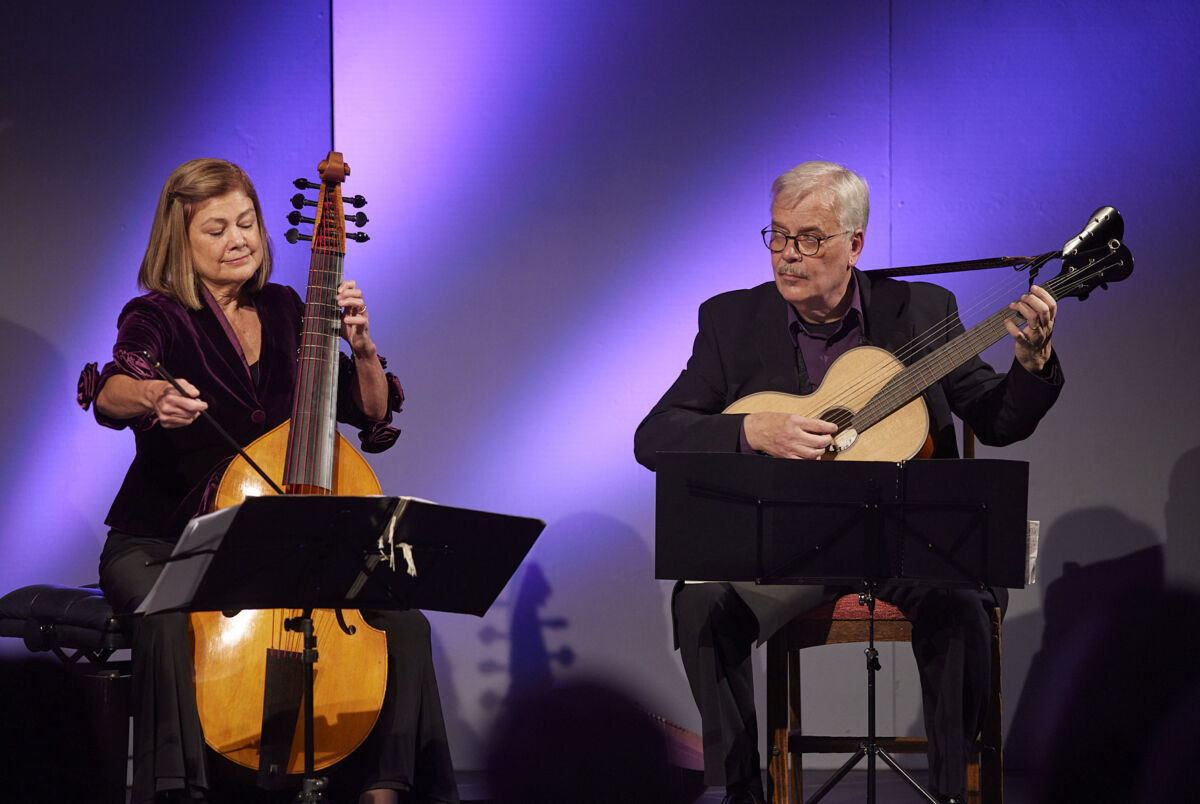What does period performance mean? And is it “better” than the modern style of performance?
So what exactly is it?
Period performance is when music is played in a historically appropriate style or on instruments from the epoch when the music was written, and with fidelity to the composers’ intentions. The term is most commonly applied in music from the Middle Ages to the Baroque, but in recent years has gained credence in Romantic and even early 20th-century works.
Period performance practice began to flourish in the early music boom of the 1970s with artists like Nikolaus Harnoncourt and Emma Kirkby, but the concept dates back to Mendelssohn’s interest in reviving Bach’s choral works. It’s also referred to as “authentic performance” and “historically informed performance”, given the slightly tongue-in-cheek acronym HIP.

The Marais Project at the 2023 Blackheath Chamber Music Festival. Photo © Keith Saunders
How can we know how early music sounded in its own time?
The quest for sounds and styles consistent with original performance practices has musicologists burying themselves in libraries and museums in search of clues. Tempo markings in manuscripts, composers’ correspondence, treatises about ornamentation and harmony, guides to playing...










Comments
Log in to join the conversation.